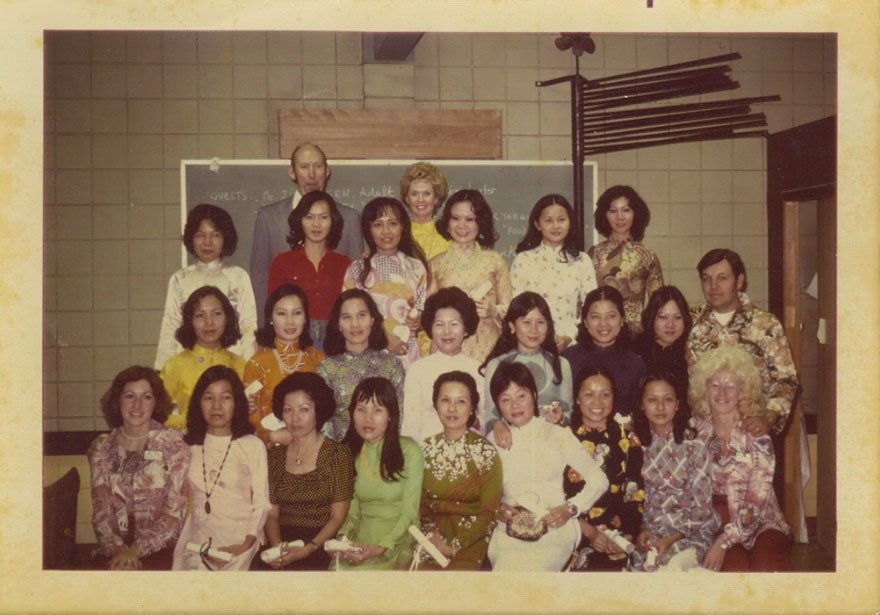Nathalie Kay “Tippi” Hedren, born on January 19, 1930, is an American actress best known for her roles in Alfred Hitchcock’s films The Birds and Marnie. Beyond her acting career, Hedren is also a dedicated animal rights activist and former fashion model. However, one of her lesser-known yet profoundly impactful contributions was her instrumental role in helping Vietnamese immigrants establish themselves in the American nail salon industry.

In the mid-1970s, following the fall of Saigon at the end of the Vietnam War, the United States saw an influx of Vietnamese refugees seeking safety and new beginnings. Many of these refugees were settled in camps across the country, one of which was Hope Village in Northern California. Hedren, serving as an international relief coordinator for the non-profit organization Food for the Hungry, began volunteering at Hope Village. Her goal was to assist the refugees in adapting to their new environment and finding pathways to self-sufficiency.
During her visits, Hedren noticed that the Vietnamese women were particularly fascinated by her meticulously maintained, glossy nails. Sensing an opportunity to provide them with a marketable skill, she contemplated how she could help translate their interest into viable employment. Determined to make a difference, Hedren reached out to her personal manicurist, a woman named Dusty, and proposed an idea: would Dusty be willing to teach nail care techniques to the women at the camp?
Dusty agreed to the proposal, and Hedren arranged for her to travel to Hope Village every weekend. Together, they organized a comprehensive training program for about twenty enthusiastic Vietnamese women. The curriculum covered all aspects of nail care, including manicures, pedicures, nail art, hygiene practices, and customer service skills essential for the beauty industry. The training was not just about imparting technical skills; it was also about empowering the women with confidence and a sense of independence in a foreign land.
Upon the completion of their training, Hedren didn’t stop at education. She leveraged her connections and influence to help the newly certified manicurists find employment opportunities throughout Southern California. She reached out to salon owners, advocated on behalf of the women, and even assisted them with the necessary licensing processes. Her efforts ensured that these women could immediately apply their new skills in the workforce, providing them with financial stability and a foothold in American society.

The impact of Hedren’s initiative extended far beyond the initial group of trainees. The women she helped went on to mentor others in the Vietnamese community, sharing their knowledge and experiences. This mentorship culture led to a burgeoning network of Vietnamese professionals in the nail salon industry. Over time, many of these individuals opened their own salons, fostering entrepreneurship within the community and creating job opportunities for others.
Today, the influence of Tippi Hedren’s compassionate intervention is evident across the United States. Vietnamese Americans own a significant proportion of nail salons nationwide, a legacy that traces back to that first group of women at Hope Village. Hedren’s unique combination of celebrity influence and humanitarian concern catalyzed a transformative movement, turning a simple act of kindness into a lasting economic phenomenon.
Her story exemplifies how individual initiative can have far-reaching effects on communities and industries. By recognizing a need and taking actionable steps to address it, Hedren not only changed the lives of those twenty women but also shaped the trajectory of Vietnamese immigrant integration into American society. Her contributions continue to be a source of inspiration and a testament to the profound impact one person can have on the lives of many.
